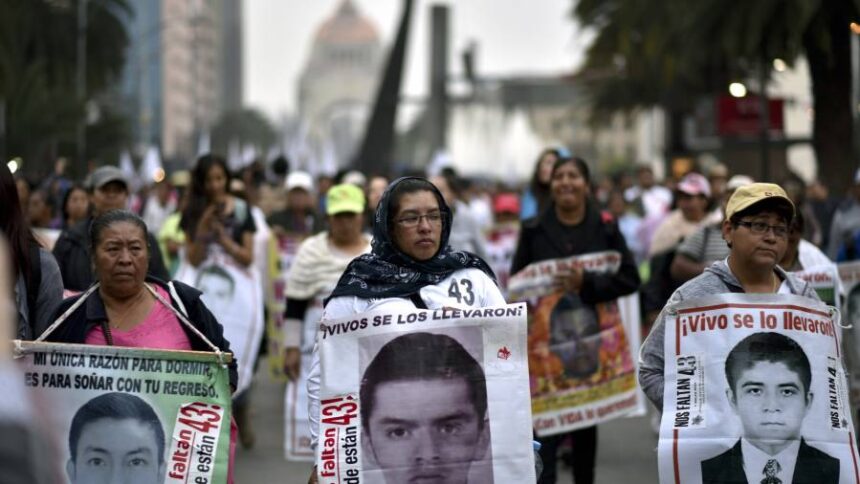Receive free Mexico updates
We’ll send you a myFT Daily Digest email rounding up the latest Mexico news every morning.
The head of Mexico’s agency for finding missing people has resigned abruptly amid a government review that some activists fear is aimed at artificially reducing the figure ahead of elections next year.
Karla Quintana, a Harvard-educated human rights lawyer who has run the National Search Commission (CNB) since 2019, did not give a reason for resignation, but said late on Wednesday that it was with immediate effect “due to the current circumstances”.
President Andrés Manuel López Obrador on Thursday said that Quintana’s time had come to an end and said his government’s review of the data was working.
“Now, we’re on the search, and were finding many of them, and we’re very happy about it,” he said. “But the fakers, hypocrite, corrupt conservatives don’t have arguments anymore. That bothers them.”
López Obrador came to power promising to combat the causes of Mexico’s rampant insecurity and violence, but total murders during his presidency have surpassed those of previous administrations. Although the number of homicides has recently fallen, one person has disappeared every hour he has been president, according to government data.
The topic is particularly sensitive as the ruling party and opposition gear up to choose their candidates for the 2024 presidential election in less than two weeks.
Some 111,049 people are missing in Mexico, mostly since 2006 when former president Felipe Calderón sent the military to take on drug cartels. Homicides began to jump soon after that.
Mexico’s government is undertaking a census of people who have disappeared by going door to door talking to families and cross-referencing databases. Some experts say the exercise does not follow legal procedures, and critics fear it is aimed at lowering the numbers rather than obtaining accurate information.
In a post on X, formally Twitter, after Quintana’s resignation, the human rights non-profit Centro de Derechos Humanos Miguel Agustín Pro Juárez said that it was worried about manipulation of the database of disappeared people to show a “fictitious decline” ahead of elections.
“This tragedy is not about numbers, budget, officials, one administration or another . . . it’s about thousands of families without the truth and without justice,” they wrote.
The database of the missing has been criticised for inaccuracies related to both under-reporting and including outdated cases, Jacobo Dayán, a teacher at the Iberoamerican university, wrote earlier this month.
“We’re facing the use of the brutal phenomenon of disappearances for electoral purposes,” he wrote.
People disappear at the hands of family members, organised crime groups and authorities, and the resulting cases are rarely solved. Images of groups of mothers who have lost their children scouring the country with shovels have become emblematic of the violence.
One of the most notorious cases involves the disappearance of 43 student teachers in the state of Guerrero in 2014. A panel of international experts investigating the incident ended their work in July, saying they had been repeatedly lied to by the military.
Additional reporting by Karla Ruiz








